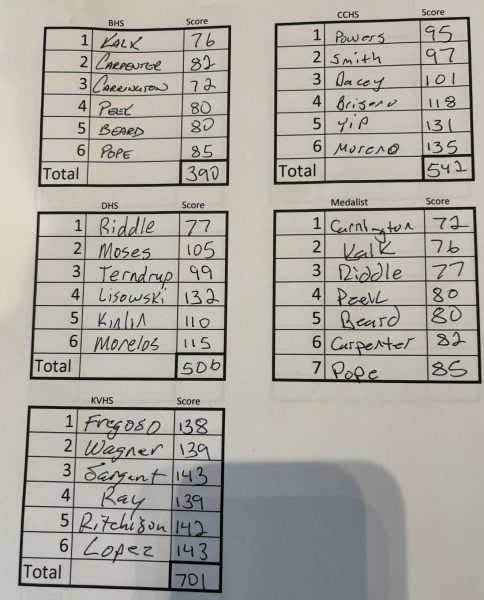Gameaholics
Gaming on a Wide Spectrum

February 13, 2017
From the dark dingy corners of Call of Duty to the fantasy worlds of Skyrim gamers show the potential of an addiction. You’ve heard of alcoholics and shopaholics, but how about gameaholics! Students who spend all their time and money on nothing other than video games, these people show the skill from novice to advanced mental capacity and knowledge on the thrilling subject of gaming.
You’ve been searching all day. You’ve traveled hundreds of miles, sometimes backtracking to make sure you haven’t missed anything. Some areas are so infested with hostile creatures that you’ve been prevented from continuing on your journey until the creatures were destroyed. After all that, you’ve finally … finally, found what you’ve been looking for – the secret passage that transports you to another place. You’ve moved up to the next level! You’re so excited that you barely notice how much your back hurts, nor do you notice that you’re on the verge of getting a migraine headache … again.
It may sound like a strange story, but it’s all too familiar for gamers. Whether they play on an Xbox or online, they enter worlds filled with witches, elves, dragons, and more, by traveling to mysterious and sometimes secret locations. They spend so much time in this other world, they begin to do physical damage to their bodies. Physical consequences of gaming addiction include carpal tunnel, migraines, sleep disturbances, backaches, eating irregularities, and poor personal hygiene.
Most of the bad effects of video games are blamed on the violence they contain. Children who play more violent video games are more likely to have increased aggressive thoughts, feelings, and behaviors, and decreased prosocial helping, according to a scientific study.. Also according to Dmitri A. Christakis of the Seattle Children’s Research Institute, those who watch a lot of simulated violence, such as those in video games, can become immune to it, more inclined to act violently themselves, and are less likely to behave emphatically. The effect of video game violence in kids is worsened by the games’ interactive nature. In many games, kids are rewarded for being more violent. The act of violence is done repeatedly. The child is in control of the violence and experiences the violence in his own eyes (killings, kicking, stabbing and shooting).
This active participation, repetition and reward are effective tools for learning behavior. Indeed, many studies seem to indicate that violent video games may be related to aggressive behavior. However, the evidence is not consistent and this issue is far from settled. The American Psychological Association also concluded that there is a “consistent correlation” between violent game use and aggression, but finds insufficient evidence to link violent video play to criminal violence. An open letter by a number of media scholars, psychologists and criminologists, however, find APA’s study and conclusion to be misleading and alarmist. On the other hand, many experts including Henry Jenkins of Massachusetts Institute of Technology have noted that there is a decreased rate of juvenile crime which coincides with the popularity of games such as Death Race, Mortal Kombat, Doom and Grand Theft auto. He concludes that teenage players are able to leave the emotional effects of the game behind when the game is over. Indeed there are cases of teenagers who commit violent crimes who also spend great amount of time playing video games such as those involved in the Columbine and Newport cases.
It appears that there will always be violent people, and it just so happen that many of them also enjoy playing violent video games. Too much video game playing makes your kid socially isolated. Also, he may spend less time in other activities such as doing homework, reading, sports, and interacting with the family and friends. On the other hand, a study by researchers at the North Carolina State University, New York and the University Of Ontario Institute Of Technology points out that gamers usually do not replace their offline social lives with online game playing, but rather it expands them. In fact, among gamers, being a loner is not the norm. Some video games teach kids the wrong values. Violent behavior, vengeance and aggression are rewarded. Negotiating and other nonviolent solutions are often not options. Women are often portrayed as weaker characters that are helpless or sexually provocative.
On the other hand, a University of Buffalo study suggests that violence and bad behavior played in the virtual world may be contributing to better behavior in the real world. Gamers who play violent games may feel guilty about their behavior in the virtual world and this may make them be more sensitive to the moral issues they violated during game play. Games can confuse reality and fantasy. Academic achievement may be negatively related to overall time spent playing video games. Studies have shown that the more time a kid spends playing video games, the poorer is his performance in school. A study by Argosy University Minnesota School of Professional Psychology found that video game addicts argue a lot with their teachers, fight a lot with their friends, and score lower grades than others who play video games less often.
Other studies show that many game players routinely skip their homework to play games, and many students admitted that their video game habits are often responsible for poor school grades. Although some studies suggest that playing video games enhances a child’s concentration, other studies, such as a 2012 paper published in Psychology of Popular Media Culture, have found that games can hurt and help children’s attention issues improving the ability to concentrate in short bursts but damaging long-term concentration. Video games may also have bad effects on some children’s health, including obesity, video-induced seizures. and postural, muscular and skeletal disorders, such as tendonitis, nerve compression, carpal tunnel syndrome. When playing online, your kid can pick up bad language and behavior from other people, and may make your kid vulnerable to online dangers. A study by the Minneapolis-based National Institute for Media and the Family suggests that videogames can be addictive for kids, and that the kids’ addiction to video games increases their depression and anxiety levels. Addicted kids also exhibit social phobias.
Not surprisingly, kids addicted to video games see their school performance suffer. Kids spending too much time playing video games may exhibit impulsive behavior and have attention problems. This is according to a new study published in the February 2012 issue of the Journal of Psychology and Popular Media Culture. For the study, attention problems were defined as difficulty engaging in or sustaining behavior to reach a goal. According to Catherine Steiner-Adair, a Harvard-affiliated psychologist and author of the best-selling book “The Big Disconnect: Protecting Childhood and Family Relationship in the Digital Age”, if kids are allowed to play “Candy Crush” on the way to school, the trip will be quiet, but it’s not what kids need. “They need time to daydream, deal with anxieties, process their thoughts and share them with parents, who can provide reassurance.”












wew • Feb 22, 2017 at 1:32 pm
I only play games because I like to say EZ after I win.